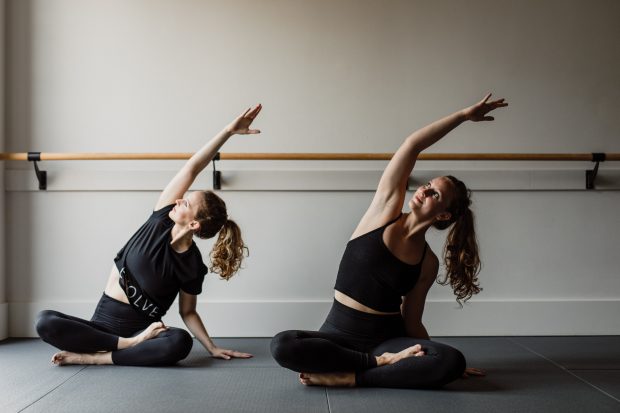Setting up a home exercise routine can be a fun and exciting exercise. When you first start you have grand plans and often an overblown opinion of your own abilities. But what happens in a few weeks when your exciting routine is boring or you aren’t getting the results you desire? One of the keys to keeping healthy and fit and creating a routine you want to stick to can be accomplished by doing a variety of exercises each week.

Create a schedule for different exercises throughout the week. For example, strength training on Monday, Wednesdays, and Fridays; cardiovascular training on Tuesdays and Thursdays; and flexibility training over the weekends.
Here are some examples of various exercises you can do every week:
Exercises to Increase Size and Strength
Strength training exercises are what you need to bulk up and improve your strength.
Isotonic and isometric exercises are two distinct types of strength training methods. Isotonic focus on moving a muscle with external resistance, such as lifting a dumbbell or pulling a resistance band. Meanwhile, isometric exercises focus on moving a muscle by pushing against external resistance, such as squeezing a spring-loaded fitness device.
Here are some garage gym ideas for both isotonic and isometric exercises:
Look for equipment like rubber hex dumbbells for sale to do isotonic exercises to work out your entire body — and be sure to get a variety of weights. Use lighter ones for your arms and shoulders and heavier limits for your back, chest, and legs. A fitness bench for bench presses and flyes is a must.
Decide between various types of isometric exercise devices, such as the bullworker, the isobow, the isokinator, and the isochain. These allow you to have variety, which is the spice of life, and your workout.
Exercises to Increase Cardiovascular Fitness
Many people believe that doing cardio means joining an aerobics class, jogging on a treadmill, riding a stationary bike, or using an elliptical machine. But many other types of cardiovascular training options are available, too.
Here are some ways to do cardio outside a gym:
- Walking is a low-cost alternative that can be done anywhere, like a local park or on the sidewalk outside your home or office.
- Bicycling and running increase your heart rate, which, in turn, improves your fitness level. Bicycling is a low-impact activity. It’s good for the knees, hips, back, and neck. Running is more strenuous.
- Bear crawls and burpees work your entire body and increase your heart rate.
- Swimming and water aerobics are excellent cardiovascular exercises. Swimming burns up to 500 calories per hour, making it one of the most efficient exercises. Meanwhile, water aerobics reduces stress, builds endurance, and strengthens your entire body.
Exercises to Increase Flexibility
A healthy exercise routine should include stretching. Many people who love bodybuilding or cardiovascular training skip it because they think they aren’t flexible enough–but regular stretching will actually increase their range of motion.
Below are some ways to loosen up:
- Standard exercises like upper back, neck, shoulder, and side stretches improve flexibility and reduce injuries. They take about ten minutes.
- Yoga increases flexibility and balance. These routines can be done at home with a yoga mat and some simple balancing equipment.
- Tai Chi has a range of subtle energy benefits. It’s more of a flowing movement compared to regular stretching exercises and yoga.
- Qi Gong is a set of slow, meditative exercises that strengthen your muscles, joints, and ligaments. It improves flexibility in the lower back, hips, ankles, and shoulders.
If you are doing stretching exercises for relief from an injury, use the RICE protocol — resting, icing, compressing, and elevating — to improve your recovery.
Benefits of Daily Exercise
Most people stick to one preferred form of exercise — but, since different types of exercise affect the body in unique ways, you should combine strength training, cardiovascular fitness, and flexibility exercises every week for the greatest benefits.
Regular exercise reduces the risk of heart disease, high blood pressure, stroke, type 2 diabetes, and certain cancers. Physical activity increases your body’s production of mood-lifting endorphins. People who exercise also significantly report feeling well-rested in the morning. Just make sure you’re changing things up so you stay interested and stick with it!



